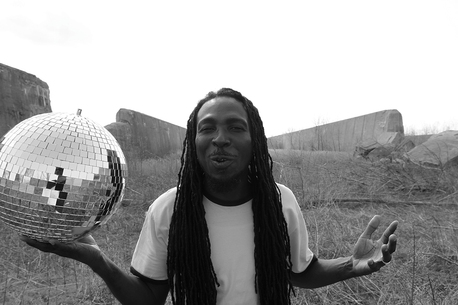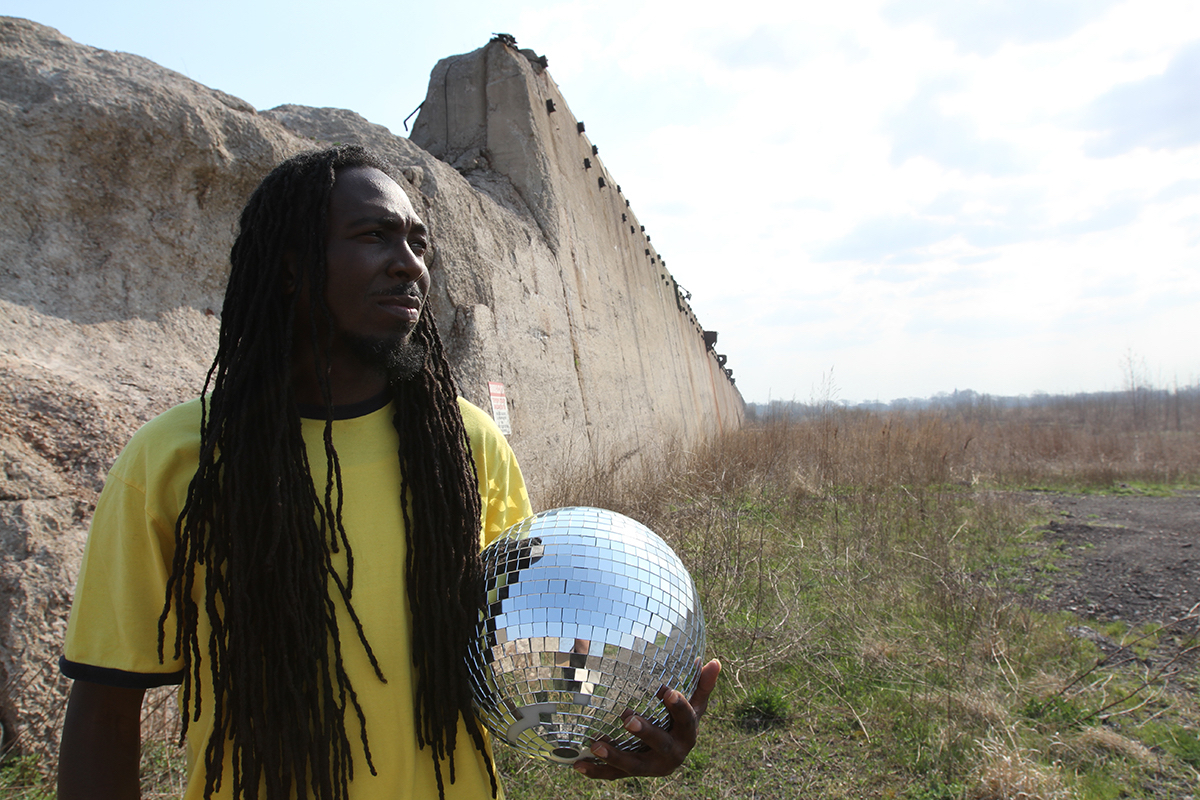
RP Boo
Where do you find yourself right now?
I’m in Chicago, the far south of Chicago, right by one of the five greatest lakes in the U.S., lake Michigan.
How is your day?
It’s a sunny day, not too hot - perfect weather.
That looks like a studio room, is that right?
I’m in the house, yeah.
Great, music is the topic. Your sampling refers to some records you grew up with, so I wanted to ask which are your first musical memories?
My mother and father always listened to radio when I was a child; there was always music played in the house. And my father had a bass guitar, he was doing this – and still does the same thing today – playing the guitar without the amplifier. He knew what he was playing because he was feeling it, but I couldn’t hear what he was playing. One day we were listening to the radio in the car, mid 70s, and I remember a commercial of a funk band and I was imagining that would look pretty cool. I just saw myself doing it, without realising that I was continuing to listen to music in the car. I have a brother, I am eleven months older than my brother, he had his side of the car I had my side – but what I would do is just listen to the radio, just do that and imagine myself being in the process to create music. If I listened to music, different types and genres of music, it was beauty to my ears and my spirit. I would always have in my mind a song I recently heard that I loved and figure out whatever the musician is doing.
You were mentioning funk and 70s records - that sound is having quite a comeback right now as far as vinyl digging. Does it happen in Chicago as well?
No, in Chicago right now everything is so digital. I miss going to record stores and picking up songs. There’s a couple of record stores in Chicago. You might have to travel public transportation up to 45 minutes to 1 hour just to get a small selection. Even if you would have to pick up a sample nowadays everybody does it in the studio – even the old school people that used to have turntables are playing digital now and the turntables are collecting dust. I’m getting my studio set up now and I still have my records in storage, but I would love to get back to sampling, there are some records I haven’t even touched. And I would still like to get vinyl copies of some songs and actually sample it from the vinyl.
When did you get into record playing and parties?
I would go to parties in Chicago that my cousins used to have. I figured that’s something I wanted to do around 1990 when I was in high school. When I was junior in high school I saved some money, bought these turntables and started buying records. So I got good at spinning and started playing out, being just a record DJ – that got good really fast. One day I met the crew
House-O-Matics, who heard a mixtape I had put together. They liked the tape but thought it’s from Deeon or Milton at that time. A guy said no, we have a new crew member and he did the tape. I remember it was on a Wednesday; on Friday I had my first gig and it never stopped from there.
How do you relate and connect to the dancefloor?
The group House-O-Matics was already part of a dance group. The president of that dance group used to dance with House-O-Matics. But they started their own dance crew and I checked it out and it was all Chicago but gave away an energy that was very new. House-O-Matics was doing the biggest parties in the South side of Chicago. All the youth and teenagers from all the sides of Chicago were coming to that area. There I saw so many different styles of dancing developing and so much creative talent. The music was hitting hard, it was ghetto house – I wasn’t a producer, but I was able to play it because I heard the latest records. For three or four years I DJed with House-O-Matics and became their main DJ – so I was able to play with them and after them. So if I saw them having a good time, I was on a mission that every track that I was playing next was going to hit even harder and harder. So that’s something we’re sharing with each other – it was a great connection. I’d play at a party and they were like we’d like him to DJ every time.
It was a call and response with the dancers.
That’s exactly it.


